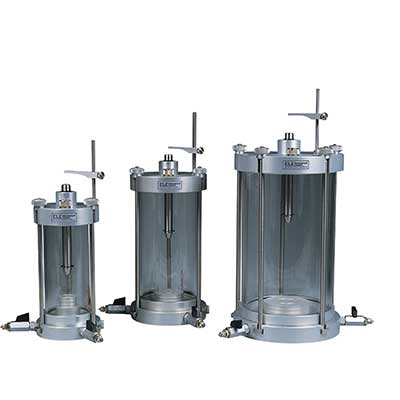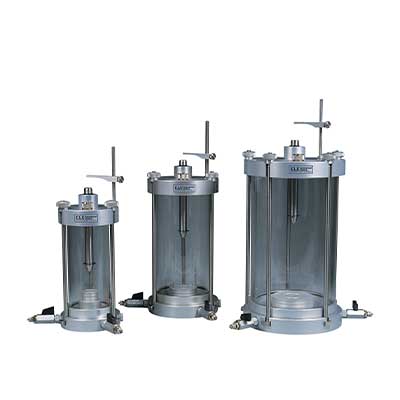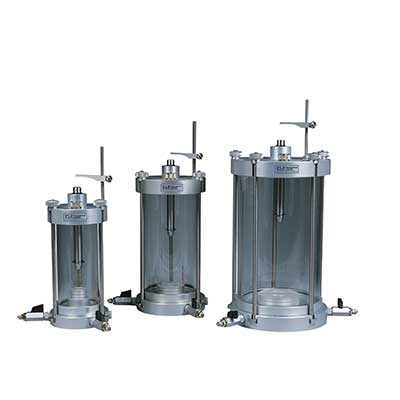
• Working pressures up to 250 psi (1,700 kPa).
• All around visibility.
• Accepts Submersible Load Transducer.
ELE Triaxial Cells are designed to meet the requirements of the modern soils laboratory. Three quick release tie rods are used to attach the cylinder and head assembly to the base.
Each cell has five base ports; two for top drainage backpressure, two for bottom drainage/pore pressure, and one for confining pressure. Two no-volume change valves and an anvil for strain indicator/transducers are supplied as standard.
Shown with base pedestal; not included, order separately.



